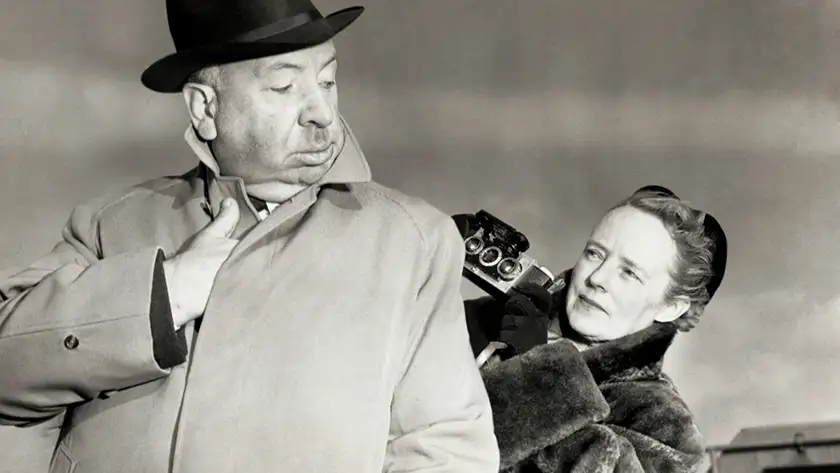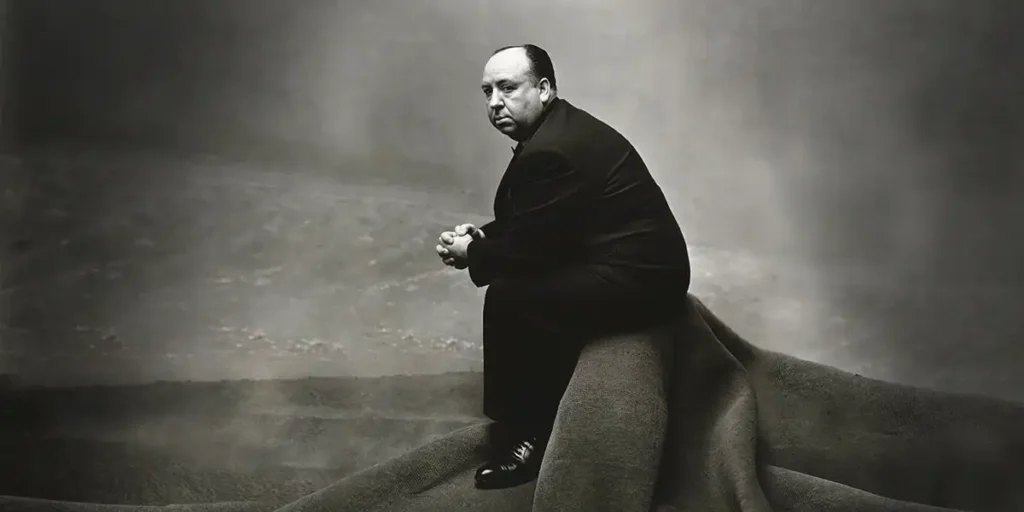Mark Cousins’ My Name is Alfred Hitchcock combines the enthusiasm of a cinema lover with an impressive knowledge of Hitchcock’s filmography.
Writer & Director: Mark Cousins
Genre: Documentary
Run Time: 120′
U.S. Release: October 25, 2024 in select US theaters
U.K. Release: Out now on digital and on demand
My Name is Alfred Hitchcock, the latest documentary from Northern-Irish director Mark Cousins, proves that Hitchcock films still have a lot to tell us about storytelling on the big screen. Given the amount that has been written about Hitchcock, you would think there would be no remaining mysteries about his career. Nor would you think there was anything left to learn about his approach that underpinned his reputation as ‘the master of suspense’.
However, Cousins’ My Name is Alfred Hitchcock skilfully generates new insights from Hitchcock’s filmography. Cousins conceived of the project during one of the early COVID-19 lockdowns. He rewatched Hitchcock films back-to-back and rekindled his long-standing admiration of the iconic director. Cousins structures his documentary using carefully selected segments and clips from distinct phases of Hitchcock’s career. There’s nothing too unusual in this format. Other documentaries, including Alfred Hitchcock: Master of Suspense (2013), present similar extracts and behind-the-scenes footage that interweave personal biography in with iconic moments from the most famous Hitchcock films.
Cousins’ twist in My Name is Alfred Hitchcock is to have these clips narrated by Hitchcock himself. The director is voiced by British impressionist Alastair McGowan who captures Hitchcock’s drawl and seems to speak from beyond the grave. Whilst this impression is unsettling at first, McGowan’s narration quickly becomes familiar as Hitchcock talks us through the formal techniques and framing of curated segments of his work. Cousins’ screenplay is filled with tongue-in-cheek humour, which McGowan relays with a rasping relish, as he mimics Hitchcock’s speech. This version of Hitchcock is self-aware and knows all about his reputation with critics (“They’ve analysed my visual fantasies, the way I peeped at people, at beauty””) and he’s wryly insightful about the tricks of cinema (“You do know that films are lies, don’t you?”).

My Name is Alfred Hitchcock presents cinema as an art form that tempts and seduces us. We may think we can analyse every element, but there needs to be an element of mystery that directors like Hitchcock so ably preserve. Cousins organises the documentary around a series of themes that reflect this love for cinematic escapism. The documentary opens with the theme of ‘Escape’ which allows Hitchcock to address the audience and tease them about their love of cinema (‘You’ve feathered your nest in the 21st-century, haven’t you? Don’t you want to escape it – we certainly did in the last century’). Cousins then moves onto ‘Desire’, ‘Loneliness’, ‘Time’ and ‘Fulfilment’, culminating with ‘Height’. This final theme reflects on how Hitchcock uses height to expose human vulnerability and helplessness. It’s a compelling outline that allows Cousins to address themes within Hitchcock’s films as well as reflecting on the practical challenges of filmmaking.
What distinguishes My Name is Alfred Hitchcock, beyond the ambition of cramming in multiple references to Hitchcock’s wide-ranging filmography into its two-hour length, is the sense of passion that Cousin infuses into Alastair McGowan’s narration. As the documentary moves through each of the six themes, the narration is evidently informed by an in-depth knowledge of Hitchcock, as well as an unabashed enjoyment of cinema. This format allows Hitchcock (or, at least, McGowan in the guise of Hitchcock) to make expected comparisons between Saboteur (1942), his World War II-era thriller, and Torn Curtain (1966), his American Cold War drama with Julie Andrews.
Cousins moves away from the conventional chronological structure and, instead, ties together different films from distinct phases of Hitchcock’s career. Hitchcock, as the narrator, brings lesser-known films to the audience’s attention. He compares their framing and presentation with more iconic Hitchcock moments, including Psycho’s infamous shower scene. He is also able to tie together his lesser-known silent films, including The Pleasure Garden (1925) and The Lodger (1926) with his Hollywood-era films set in sun-kissed locations with stars like Cary Grant. Fans of Hitchcock will be able to revisit Psycho and Vertigo, when discussing the theme of desire, and Marnie and Foreign Correspondent when talking about escape.
My Name is Alfred Hitchcock makes all kinds of compelling connections that may not have been possible in a more impartial and comprehensive study of Hitchcock. The vivid themes that structure the documentary are open to interpretation but not too broad as to become vague for the audience to follow and enjoy. Cousins’ enthusiasm is palpable throughout. The documentary offers an intensive crash course in Hitchcock cinematography and its influence on cinema. It is not a comprehensive, impartial survey of Hitchcock’s filmography. Instead, it is very much a personal love letter to Hitchcock that simmers with the passions of a long-experienced cinephile.
My Name is Alfred Hitchcock will be released in select US theaters, including LA and NY, on October 25, 2024. In the UK, the film is now available to watch on digital and on demand.

